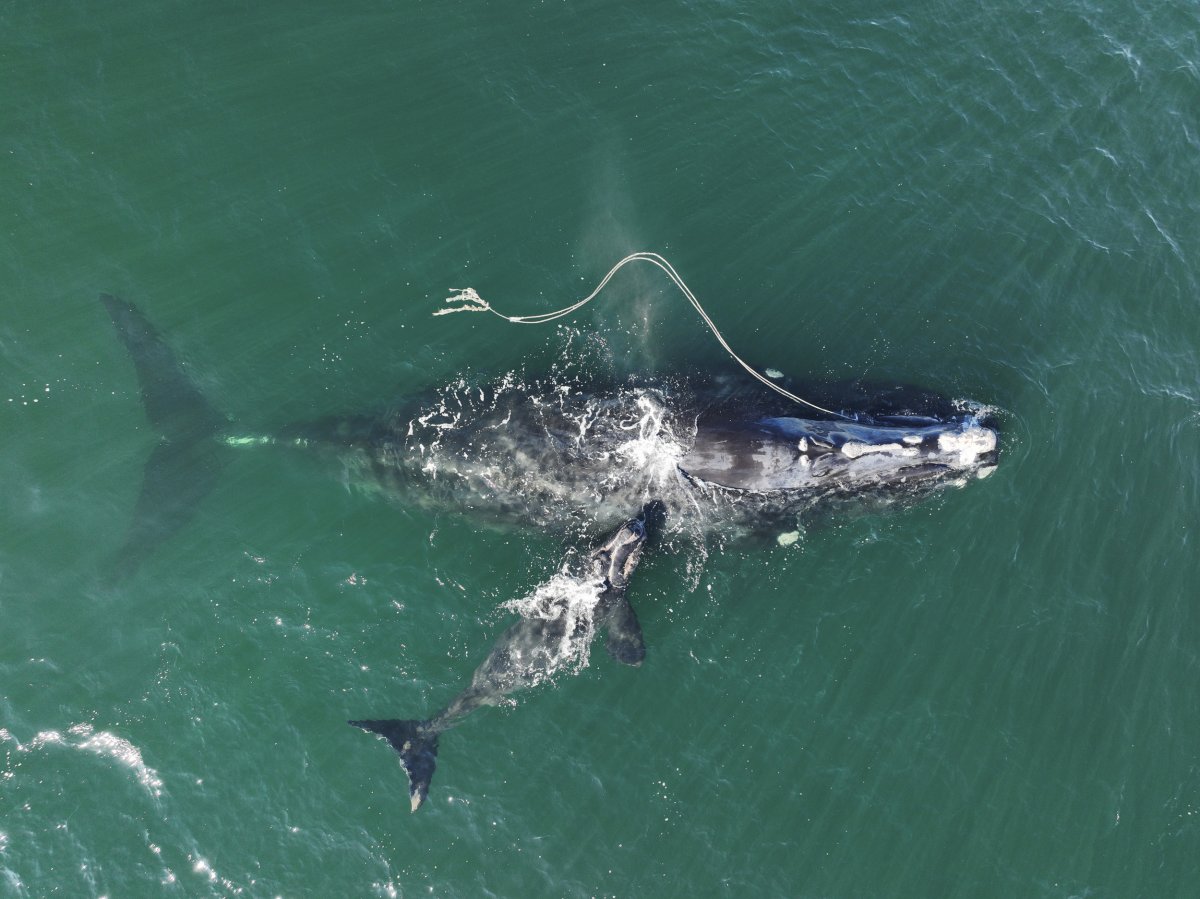Scientists with the Georgia Department of Natural Resources saw an endangered North Atlantic right whale entangled in fishing rope swimming with a newborn calf Thursday but could not safely help to remove the rope.
Clay George, a wildlife biologist with the Georgia DNR, told the Associated Press that the calf appeared healthy and uninjured.
"My concern is [the mother has] still got two pieces of rope, about 20 feet, coming out from the left side of her mouth," George said. "If those two pieces of rope ended up getting knotted around each other and there's a loop, you could image that calf could end up becoming entangled."
An aerial team spotted the whales near Cumberland Island, Georgia. Though trained responders approached them via boat on Thursday, they determined they could not attempt to remove or shorten the rope without significant risk.
Based on markings on the mother whale's head, experts have confirmed it has been dragging this rope since March, when it was first reported entangled in Cape Cod Bay. At the time, they managed to shorten the rope to its current 20 feet but could not completely remove it.
According to AP, there are fewer than 350 North Atlantic right whales left, as they were mostly wiped out during the height of commercial whaling's popularity.
For more reporting from the Associated Press, see below.

It was the second newborn right whale confirmed in the Atlantic waters of the Southeastern U.S. during the species' calving season that typically runs from December through March.
Adult female right whales migrate to warmer waters off Georgia and Florida each winter to give birth. George said he's only aware of one other confirmed report, from January 2011, of an entangled right whale being seen with a newborn—and that one ultimately managed to free itself.
"We haven't seen a chronically entangled whale come down here from up north and have a calf," George said, adding: "It's amazing. But on the other hand, it could ultimately be a death sentence for her."
That's because the mother whale may struggle to nurse her calf and still have the energy needed to keep dragging the fishing line while also trying to recover from potential injuries to its mouth, George said.
Female right whales typically gorge themselves in the waters where they feed and mate off New England and Canada before heading south to give birth. They won't eat again until they return—a round trip that can take three months or longer.
Spotters who scan the waters daily for whales and their babies during the calving season plan to keep an eye out for the pair.
Scientists and advocates with the North Atlantic Right Whale Consortium said in October they suspect the marine mammals lost nearly 10 percent of their population last year, with their overall number falling to an estimated 336.
Scientists say entanglement with fishing gear and collisions with ships are killing right whales faster than they can reproduce.
Uncommon Knowledge
Newsweek is committed to challenging conventional wisdom and finding connections in the search for common ground.
Newsweek is committed to challenging conventional wisdom and finding connections in the search for common ground.
About the writer
To read how Newsweek uses AI as a newsroom tool, Click here.








